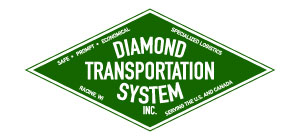What Does a Freight Broker Do?
In the complex and interconnected world of the shipping industry, freight brokers are indispensable agents who ensure the seamless movement of goods across various transportation channels. Acting as essential links between shippers and carriers, freight brokers manage the logistical intricacies of transporting cargo, making them fundamental to the efficient operation of supply chains.
Understanding the Role of a Freight Broker
A freight broker acts as an intermediary between shippers who have goods to transport and carriers who have the means to transport those goods. Known alternatively as truck brokers or cargo brokers, these professionals play a critical role in the logistics network, ensuring that cargo reaches its destination efficiently and economically.
Core Functions of a Freight Broker
The primary responsibility of a freight broker is to match shippers with appropriate carriers. This involves more than just connecting two parties; brokers must negotiate contract terms, prices, and logistical details to facilitate the smooth transport of goods. They continually communicate with carriers during the transit, providing updates and tracking the progress of shipments to ensure that everything is proceeding as planned.

Freight brokers utilize their extensive industry knowledge to identify reliable carriers for specific loads. This expertise is invaluable for carriers seeking a consistent workload and for shippers needing dependable transportation solutions.
Brokers may operate independently or as part of a larger brokerage firm, and they often handle various types of transportation methods. From single-mode transport, involving only one type of vehicle, to multimodal transport, which includes multiple types of vehicles—like a truck picking up a load from a train—brokers coordinate these complex logistics scenarios to streamline the shipping process.
Distinguishing Freight Brokers from Freight Agents
Though they share similar titles and some job functions, freight brokers and freight agents have distinct roles within the shipping industry. Agents typically work under brokers and are compensated on a commission basis, drawing from the transactions the broker secures.
One significant difference lies in their operational requirements. Freight brokers are mandated by the Federal Motor Carrier Safety Administration (FMCSA) to hold specific licenses and maintain liability insurance and surety bonds. These requirements underscore the broker’s responsibility in managing financial and operational risks, including credit risks associated with extending terms to shippers.
On the other hand, agents are not burdened with these requirements. They focus more on the day-to-day management of shipping transactions, such as scheduling pickups and drop-offs, searching for carriers, and handling dispatch operations.
The Indispensable Value of Freight Brokers

Freight brokers are pivotal to the shipping industry for several reasons. They help maximize the operational efficiency of carriers by ensuring that transport vehicles are consistently filled and on the move, which in turn aids carriers in maintaining profitability and operational efficiency. For shippers, brokers negotiate favorable shipping terms, securing discounts and ensuring that logistical arrangements meet the specific needs of the cargo.
Brokers are particularly crucial in sectors where specialized knowledge is required, such as in agricultural transport or international shipping. These brokers handle unique challenges, such as coordinating with government agencies and managing compliance with international shipping regulations.
A Day in the Life of a Freight Broker
The daily routine of a freight broker is both fast-paced and diverse, reflecting the dynamic nature of the shipping industry. The day typically begins early, with brokers reviewing overnight communications and preparing for the day’s tasks. This might include checking in with drivers, who are also early risers, and aligning the day’s trucking schedule based on incoming requests and logistical needs.
Throughout the day, freight brokers are deeply involved in various activities, from negotiating with shippers and carriers to managing the scheduling of pickups and deliveries. They are also responsible for solving any logistical problems that arise, ensuring that each cargo shipment is executed without disruptions.
Planning for Success
The role of a freight broker is not just demanding; it is also highly rewarding. These professionals are pivotal to ensuring that the shipping industry operates smoothly, facilitating the transport of goods across the country. Without the expertise and efforts of freight brokers, shippers would struggle to find reliable and efficient transportation solutions, and carriers would face the economic burden of underutilized fleets.

For those in need of experienced and reliable freight brokerage services, Osage Specialized Transport offers a track record of success since 1995. As a top agent for major carriers, Osage Specialized Transport ensures that your shipments are managed with professionalism and precision, offering real-time updates and comprehensive logistical support to meet all your shipping needs.
In conclusion, freight brokers are more than just intermediaries in the shipping process. They are key contributors to the efficiency and reliability of the transportation of goods, playing a critical role in the global supply chain and helping businesses achieve operational success through expert logistics management.
If you have cargo of any size that you need transported throughout the nation and require the hauling services of an experienced cargo brokerage, contact us at Osage Specialized Transport. Working and thriving in the industry since 1995, we will ensure that your shipment arrives quickly and safely, with location updates available as you need them.
Reader interactions
One Reply to “What Does a Freight Broker Do?”
Comments are closed.
















[…] For those in the transportation industry, safety is a high priority. Indeed, safety is the highest priority of the Department of Transportation, or DOT, and its related departments. […]